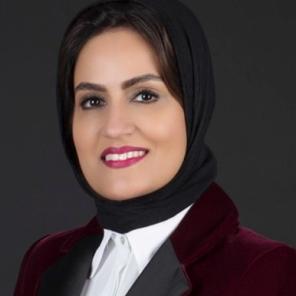
Dr. Hend Alqaderi is an assistant professor at Tufts University School of Dental Medicine. She holds a Doctor of Medical Sciences degree in Oral Biology from Harvard School of Dental Medicine, a Certificate in Applied Artificial Intelligence from MIT, and a Certificate in Health Economics from the University of Washington. She is a Diplomate of the American Board of Dental Public Health, and she served as the interim program director for the Dental Public Health Residency at Harvard School of Dental Medicine. Alqaderi is a Visiting Scientist at the J. Craig Venter Institute in San Diego and contributes her expertise as a Research Scientist at the Dasman Diabetes Institute in Kuwait. She was honored with the prestigious L'Oréal UNESCO Award for Talented Women in Science. Recently, Alqaderi delivered a TED Talk in Doha, Qatar, sharing insights from her research on oral microbiome and systemic diseases.
Please briefly describe your background and research interests.
My research journey has been a passionate dive into the world of oral biofluids and their role in diagnosing systemic diseases, with a special focus on saliva. I've had the privilege of working with esteemed national and international institutes on groundbreaking projects, such as the Kuwait Healthy Life Study and a pivotal COVID-19 study. During the Kuwait Healthy Life Study, we unearthed salivary biomarkers that can predict diabetes risk in children. One of our standout findings was that salivary C-Reactive Protein (CRP) and insulin levels could predict hyperglycemia in adolescents, mirroring blood CRP and insulin levels. As the Principal Investigator in a COVID-19 longitudinal study, I collaborated with institutions like the J Craig Venter Institute to explore the salivary microbiome's predictive value for COVID-19 status. Our research revealed that the salivary microbiome could forecast COVID-19 severity, highlighting the unique roles of the oral immune response during the acute phase of SARS-CoV-2 infection.
What has been the most valuable benefit of AADOCR membership to you?
The most invaluable benefit of my AADOCR membership has been the profound connections with fellow scientists and the opportunities to elevate our presence in the scientific community. Serving on the esteemed diversity and inclusion committee at AADOCR has been transformative. I’ve learned how to support junior researchers from diverse backgrounds in dental research, sharing opportunities with them, which has been both deeply satisfying and rewarding for me.
What was the biggest impact the AADOCR Mind the Future Program had on you, either personally or professionally?
Before joining the MIND the Future program, submitting an NIH grant proposal felt like an unattainable dream. However, the program instilled in me the confidence to submit my own grant application and strive to become an independent PI. Working with esteemed mentors and experts, who guided us through every step of grant writing, was invaluable. Connecting with colleagues and learning from their successes and challenges, especially those faced by women and minorities in research, has been incredibly inspiring. These experiences have motivated me to persevere and aim for breakthrough discoveries in saliva research.
Are you going to next year’s AADOCR Annual Meeting in New York? If so, which parts are you most looking forward to?
Absolutely, I wouldn't miss it! Presenting the latest findings from my research is always a highlight, but I'm equally excited about attending presentations that align with my interests. This year, I am particularly proud of my mentees, who will be presenting their research for the first time at AADOCR. Mentoring them and watching their growth in dental research is incredibly fulfilling.
What is the best way for other members to become more involved in AADOCR?
I strongly encourage junior researchers to be part of the AADOCR by actively participating in committees that pique their interest. It's crucial for students and faculty to attend all meetings, as these gatherings are prime opportunities for networking, collaboration, and staying up-to-date with the latest advancements in science and dental research.




